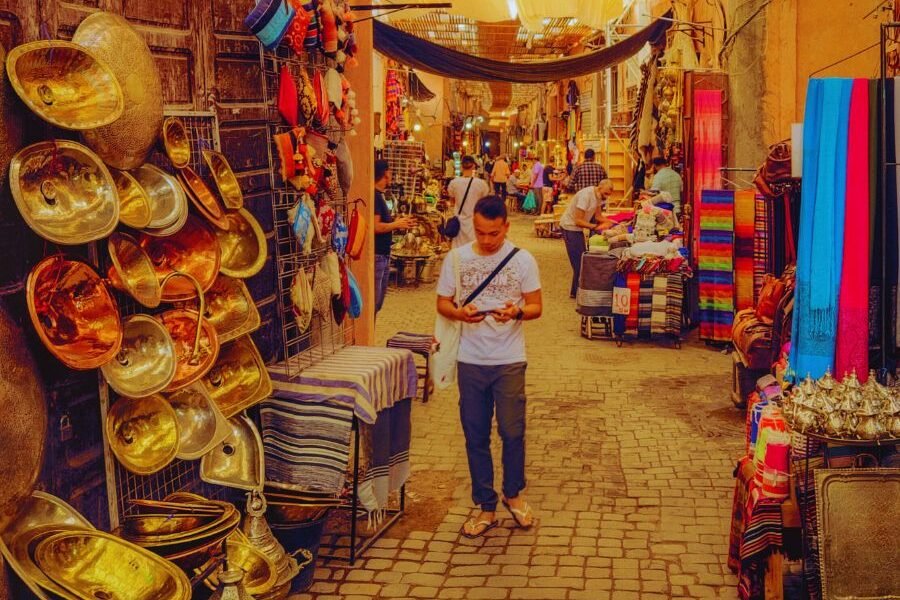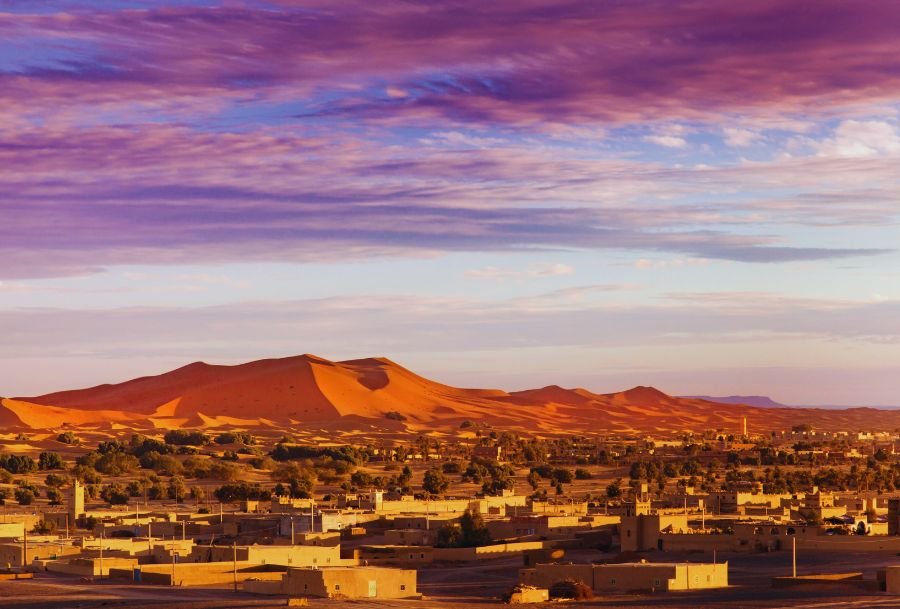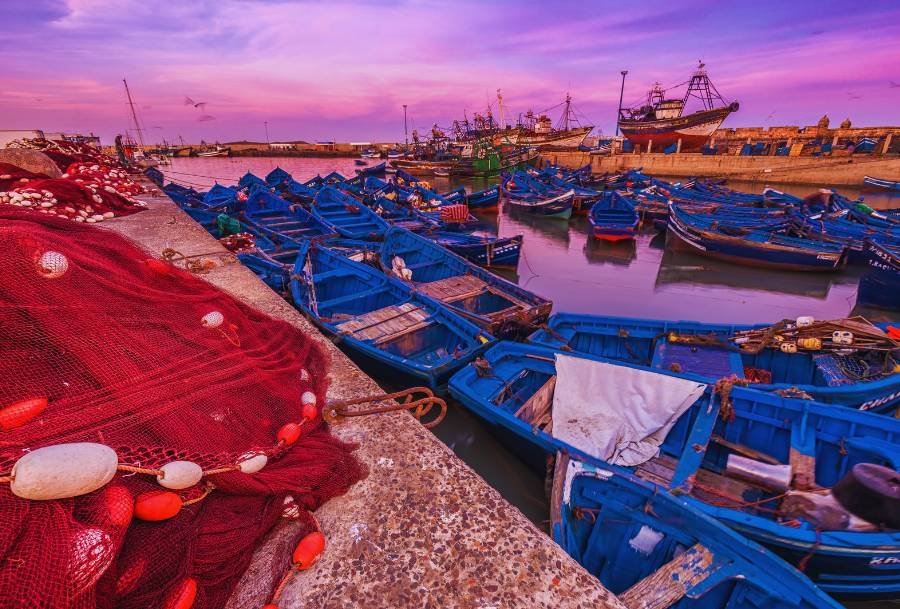Travel to Morocco in Ramadan and dive into an extraordinary adventure! Experience the country’s remarkable transformation during this sacred month. Our guide for non-Muslims ensures you blend in respectfully. From navigating schedules to savoring Ramadan cuisine, let’s make your journey unforgettable! Don’t forget to greet with ‘Ramadan Karim.’ Let’s explore!
Table of Contents
Why Travel to Morocco in Ramadan?
Traveling to Morocco during Ramadan is an experience like no other. Throughout the month, the country undergoes a remarkable transformation: work hours shorten, public spaces buzz with activity late into the night, and communities unite through acts of charity.
Ramadan holds deep spiritual significance for Muslims who fast from sunrise to sunset as a means to renew and increase religious devotion. The month is a time for reflection, prayer, and generosity, as individuals strive to strengthen their religious bond and extend compassion to others.
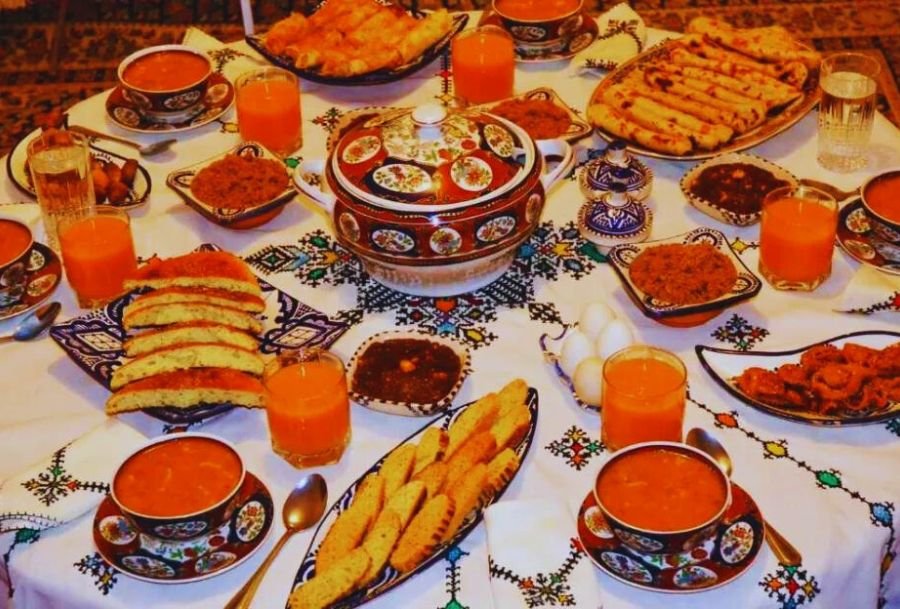
To fully immerse yourself in this enchanting atmosphere while remaining respectful to local customs and the spiritual essence of the month, we’ve compiled a practical Ramadan guide for non-Muslims.
Adapt to Changing Time Schedules
During Ramadan, working hours change significantly throughout Morocco. Nearly all businesses and public administrations shorten their operating hours, with many closing earlier in the day as activities wind down in the hours leading up to sunset.
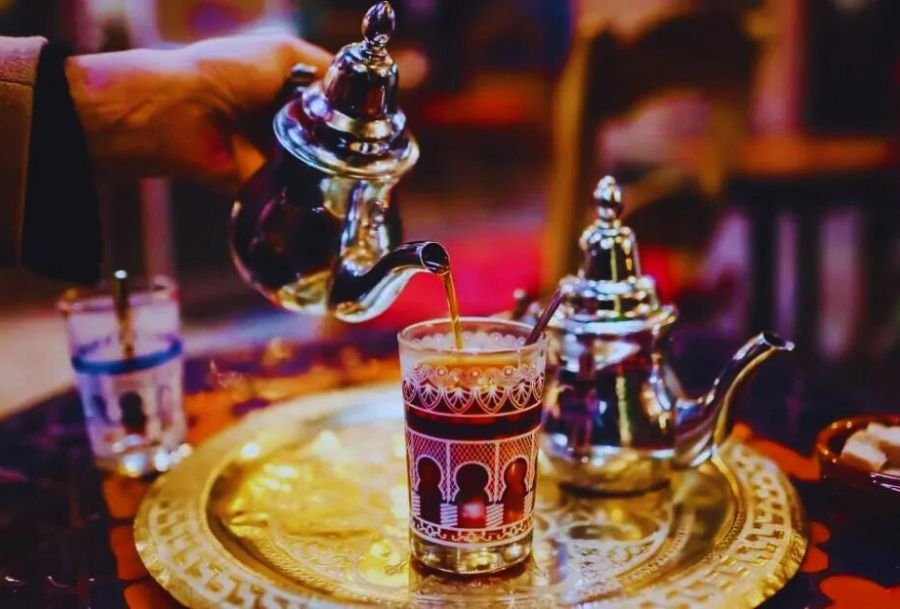
Mornings also tend to start later, and business activities may be slower during fasting hours. If you require services from public administrations or businesses, it’s advisable to plan your visits for midday when operations are likely to be more accessible.
Consider Wearing Respectful Attire
Morocco is generally known for its liberal approach to public dress codes. However, during Ramadan, there’s a noticeable shift as Muslims become more mindful of how they dress.
You will notice that people wear traditional garments, particularly as they are more likely to frequent mosques and engage in religious practices.
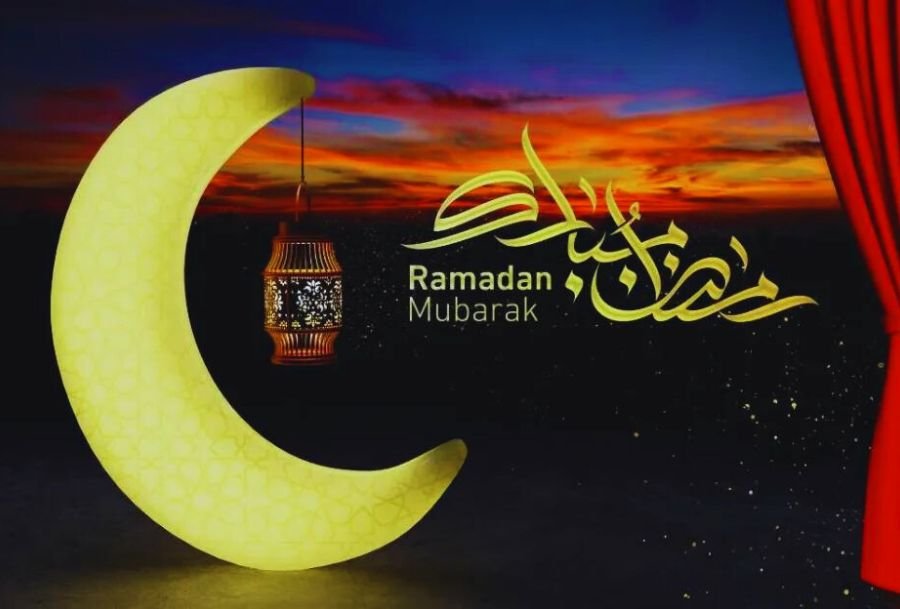
As a foreigner, you will not be expected to adhere to the same standards, but it’s advisable to dress modestly out of respect for local customs.
It’s also a good idea to avoid wearing revealing clothing, especially when visiting religious sites or participating in communal events such as public Iftars, the communal meals Muslims share to break their fasts.
Avoid Public Displays of Affection, Eating, or Drinking
Locals in Morocco will not expect foreigners to fast, but it’s better to refrain from eating or drinking in public during daylight hours.
Even Muslims who are exempt from fasting due to health reasons refrain from consuming food or beverages in public, as it is considered impolite and insensitive to those observing the fast.
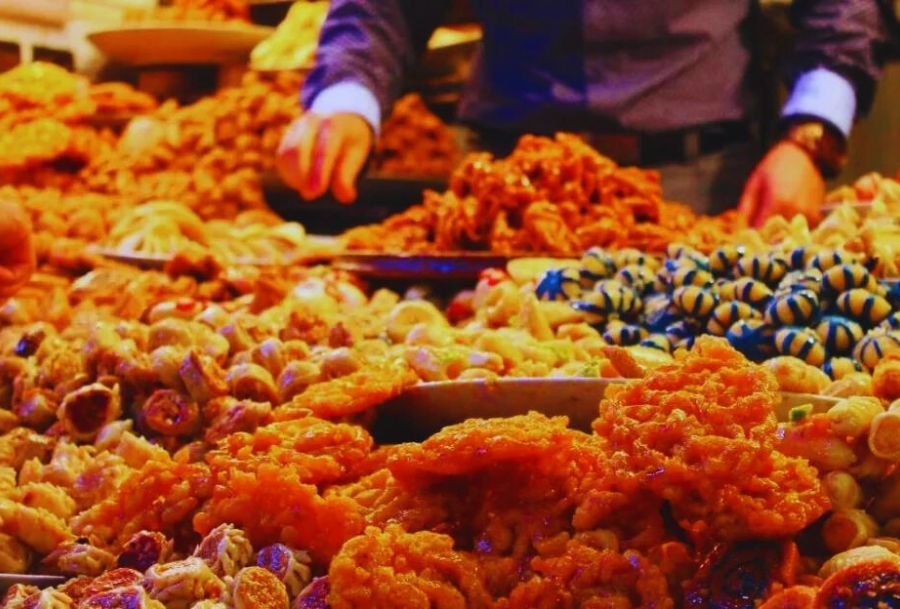
Also, public displays of affection should be avoided, as they are considered rude in Muslim countries, particularly during Ramadan.
It’s important to note that during daylight hours, almost all restaurants in Morocco are closed. Alcohol shops close for the whole month, even in the 40 days leading up to Ramadan.
While some food delivery applications may offer limited options, it’s advisable to plan your meals ahead. Shops also tend to open late, so be sure you have everything you need when shops are open.
Don’t Assume Muslims Lose Weight in Ramadan
In Western cultures, fasting is often associated with weight loss, leading foreigners to assume that Muslims shed pounds during Ramadan. This couldn’t be further from the truth.
In reality, weight is a sensitive topic during Ramadan. Due to excessive eating habits during Iftar, many Muslims gain weight during the holy month rather than lose it.
So, it’s important to avoid discussing fasting and weight loss when engaging in conversation with locals.
Enjoy Morocco’s Ramadan Cuisine
Public Iftars in Morocco offer a delightful culinary experience that shouldn’t be missed. Beyond the mouthwatering food, these events serve as one-of-a-kind gatherings that bring entire communities together in a unique atmosphere of solidarity.
Travel to Morocco during Ramadan offers an opportunity to partake in the spirit of generosity and hospitality that defines Ramadan.
After Iftar, communities engage in extended prayer sessions, followed by lively activities that illuminate the streets.
Frequently Asked Questions
-
Is it okay to visit Morocco during Ramadan as a non-Muslim?
Absolutely! Morocco welcomes visitors of all backgrounds during Ramadan. Just be mindful of local customs and traditions, and you’ll have a respectful and enriching experience.
-
Are there any changes in the operating hours of businesses and attractions during Ramadan?
Yes, there are. Many businesses and public places may have adjusted hours during Ramadan, with some closing earlier in the day. It’s advisable to plan your activities accordingly, especially if you need services from public administrations or businesses.
-
Is there a dress code to follow during Ramadan in Morocco?
While Morocco is generally liberal in its dress codes, it’s respectful to dress modestly during Ramadan. Locals may be more conscious of traditional attire, especially when frequenting mosques and engaging in religious practices.
-
Can I eat or drink in public during Ramadan as a non-Muslim?
It’s best to refrain from eating or drinking in public during daylight hours out of respect for those observing the fast. Even though non-Muslims are not expected to fast, it’s considered polite to avoid public consumption during fasting hours.
-
Are restaurants open during the day in Morocco during Ramadan?
Most restaurants remain closed during daylight hours in Ramadan. While some food delivery options may be available, it’s advisable to plan your meals and be aware that shops may also open late.
-
What is the significance of public Iftars in Morocco?
Public Iftars offer a delightful culinary experience and a unique opportunity to witness communities coming together. These events showcase the spirit of generosity and hospitality that defines Ramadan.
